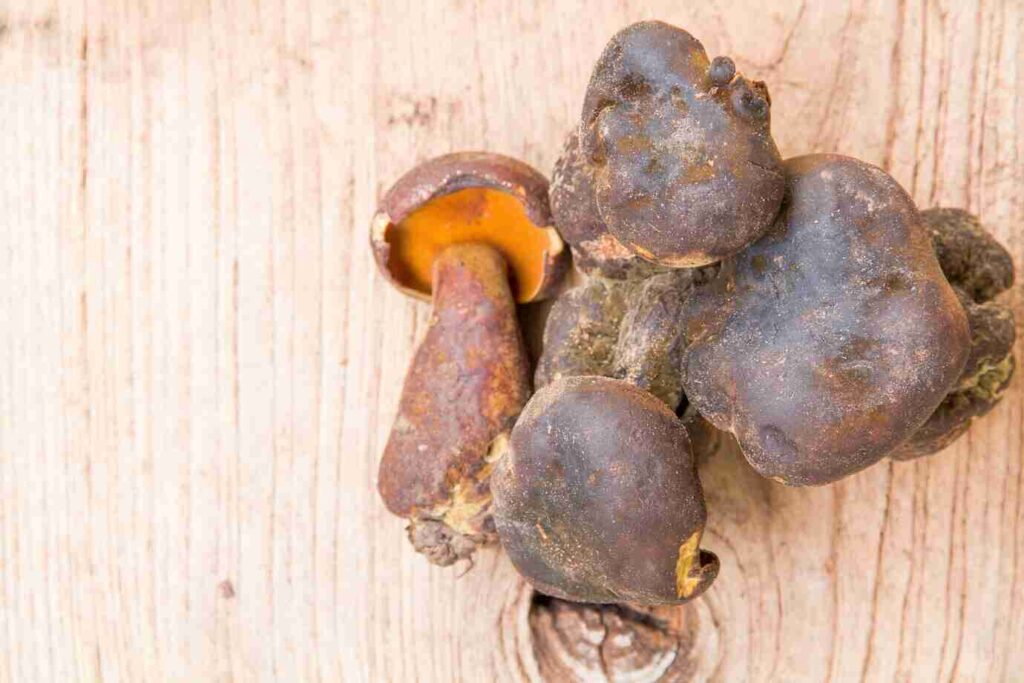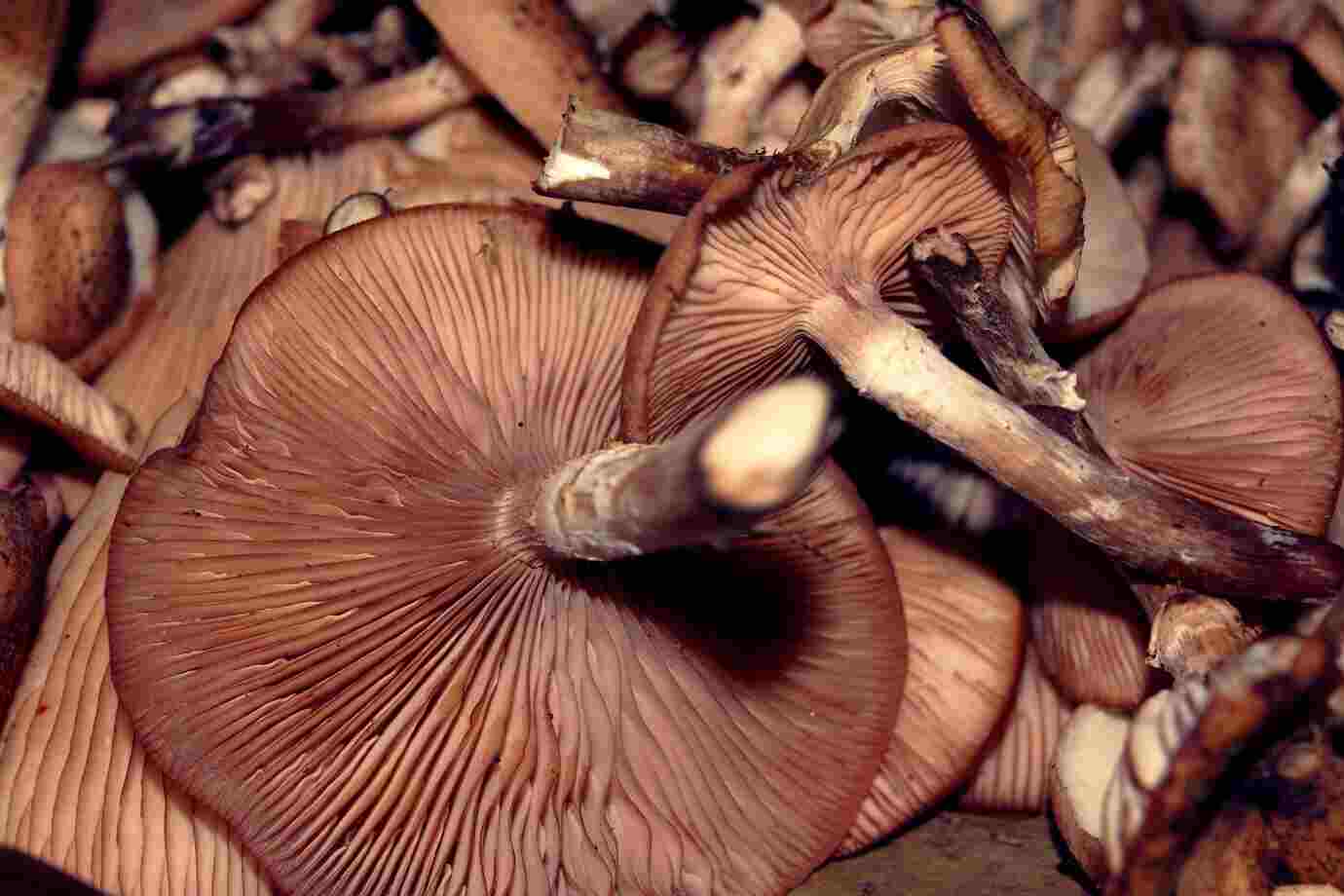Medicinal mushrooms have been around for centuries. Used in traditional Chinese and Ayurvedic medicine, these powerful fungi were once prized as natural remedies for everything from fatigue to infection. Today, science is finally catching up with tradition—and the spotlight on medicinal mushrooms is brighter than ever.
Why the buzz? Modern research shows these mushrooms offer real, wide-ranging health perks. Many are packed with beta-glucans, antioxidants, and adaptogenic compounds that support immune function, fight inflammation, and even boost brain health. And they do all this naturally—no synthetic additives needed.
From lion’s mane and reishi to cordyceps and chaga, each mushroom brings its own set of benefits. Some support focus and memory, while others help balance stress or enhance energy levels.
In this guide, we’ll explore the most powerful mushroom health benefits, break down the science behind each one, and show you how to safely add them to your routine. Curious if these ancient fungi are worth the hype? Let’s find out.
What Are Medicinal Mushrooms?
Medicinal mushrooms, also known as functional mushrooms or healing mushrooms, go beyond flavor and texture. Unlike common culinary mushrooms like white button or portobello, these mushrooms contain powerful bioactive compounds that offer specific health benefits.
Many medicinal mushrooms are rich in beta-glucans, polysaccharides, terpenes, and antioxidants. These compounds are known for supporting the immune system, reducing inflammation, and promoting cellular health. That’s why they’re often used in natural medicine and modern wellness routines.
You won’t always find them on your dinner plate. Medicinal mushrooms are usually taken in powder, capsule, tincture, or tea form—making them easy to add to smoothies, coffee, or supplements.
In many ancient healing systems, these mushrooms are considered adaptogens, meaning they help the body adapt to stress and maintain balance. Some support mental clarity, while others are used for energy, immune defense, or relaxation.
From reishi and chaga to cordyceps and lion’s mane, medicinal mushrooms are gaining traction as science backs their centuries-old use. Want to know which ones are the most effective? Let’s explore them next.
Top 6 Medicinal Mushrooms and Their Benefits
Medicinal mushrooms have been used for centuries in traditional medicine, but their true potential is only now being understood through modern science. Let’s explore six of the most popular medicinal mushrooms and their proven health benefits:
1. Reishi Mushroom (Ganoderma lucidum)
Benefits: Stress reduction, sleep aid, immune modulation
Reishi is often referred to as the “mushroom of immortality” due to its profound health benefits. One of its most notable effects is its ability to help reduce stress and anxiety, thanks to its adaptogenic properties. Studies have shown that reishi can regulate cortisol levels, promoting a calm and balanced state. It is also known for supporting sleep by promoting relaxation, helping to improve sleep quality.

Additionally, reishi has immune-modulating effects. Research shows that it can enhance immune function, making the body more effective at fighting off infections. It’s also widely studied for its potential to reduce inflammation, which can play a role in chronic disease prevention.
2. Chaga Mushroom (Inonotus obliquus)
Benefits: Antioxidant powerhouse, skin health, anti-inflammatory
Chaga is one of the most potent antioxidant-rich mushrooms, packed with polyphenols and melanin, which are key to its health benefits. The high antioxidant content helps fight oxidative stress, making it beneficial for overall health and longevity. Studies show that chaga has powerful anti-inflammatory properties, which may reduce the risk of chronic conditions like heart disease and arthritis.
Chaga also shows promise for supporting skin health. Due to its melanin content, it has been used traditionally for its ability to improve skin tone and texture. Emerging research also suggests chaga’s ability to strengthen the immune system by stimulating the production of white blood cells, which help fight infection.
3. Lion’s Mane Mushroom (Hericium erinaceus)
Benefits: Supports memory, focus, nerve regeneration
Lion’s mane is perhaps best known for its brain-boosting properties. This unique mushroom contains compounds that stimulate nerve growth factor (NGF), a protein essential for the growth and maintenance of neurons. Studies have shown that lion’s mane can help enhance cognitive function, improve memory, and increase mental clarity.
Research also suggests that lion’s mane may promote nerve regeneration, which could be beneficial for conditions like Alzheimer’s disease and other neurodegenerative diseases. Some studies have even found that lion’s mane may help reduce mild symptoms of anxiety and depression, further supporting its role in overall brain health.
4. Cordyceps (Cordyceps sinensis)
Benefits: Boosts energy, stamina, respiratory health
Cordyceps is famous for its ability to improve athletic performance. It works by increasing the body’s production of ATP (adenosine triphosphate), a molecule that delivers energy to the muscles. This makes it a favorite among athletes and those looking to boost stamina and endurance.
In addition to enhancing energy, cordyceps has been shown to improve respiratory health. It increases oxygen utilization in the body, which is particularly beneficial for people with conditions like asthma or those recovering from respiratory illnesses.
Studies also suggest that cordyceps may help regulate blood sugar levels, making it an excellent addition to a healthy lifestyle.
5. Turkey Tail Mushroom (Trametes versicolor)
Benefits: Gut health, immune regulation, anticancer support
Turkey tail is a popular mushroom in the realm of gut health, thanks to its prebiotic properties. It contains polysaccharides, such as PSK and PSP, which help nourish the beneficial bacteria in the gut, promoting a healthy microbiome. Research has shown that turkey tail can help boost the immune system and improve gut health, which are closely linked to overall well-being.
In addition to its gut benefits, turkey tail is studied for its potential anticancer properties. Several clinical trials have investigated its role in cancer treatment, with promising results in helping to strengthen the immune system during chemotherapy.
Some studies suggest that turkey tail may improve the effectiveness of conventional cancer treatments.
6. Maitake Mushroom (Grifola frondosa)
Benefits: Blood sugar control, cholesterol management
Maitake is known for its ability to help regulate blood sugar levels and reduce cholesterol. Studies have shown that maitake can improve insulin sensitivity, which is beneficial for individuals with type 2 diabetes. Additionally, maitake’s bioactive compounds have been found to lower total cholesterol levels, reducing the risk of heart disease.
Furthermore, maitake is rich in beta-glucans, which have immune-boosting properties, helping the body fight infections and disease more effectively.
These six medicinal mushrooms have been used for centuries and are now backed by modern science for their diverse health benefits. From improving brain health with lion’s mane to enhancing energy levels with cordyceps, medicinal mushrooms offer a powerful way to support your overall well-being.
How to Use Medicinal Mushrooms
Incorporating medicinal mushrooms into your daily routine can be simple and enjoyable, thanks to their versatility. From capsules to powders, there are various ways to take advantage of their wellness benefits. Here’s how you can make medicinal mushrooms a part of your everyday life:
1. Capsules and Tinctures
The most convenient way to consume medicinal mushrooms is through capsules or tinctures. These products offer pre-measured doses and are easy to incorporate into your daily supplement routine. Simply follow the dosage guidelines provided by the manufacturer or consult a practitioner to find the right amount for your needs.
2. Mushroom Powders
Powders are another popular choice. You can find a range of medicinal mushroom powders—like lion’s mane, reishi, and cordyceps—to add to smoothies, coffee, or teas. A simple way to boost your morning routine is by mixing mushroom powder into your coffee or matcha for a brain-boosting start to the day.
Alternatively, you can add it to your favorite soups, stews, or even baked goods for an extra health boost.
3. Teas and Functional Beverages
Medicinal mushrooms are often included in functional beverages like herbal teas and wellness shots. Reishi and chaga teas are particularly popular for their calming and antioxidant properties. These drinks are a great way to unwind or support your immune system throughout the day.
4. Follow Dosage Guidelines
When using medicinal mushrooms, it’s important to follow dosage recommendations from trusted brands or consult with a healthcare professional. The amount varies depending on the mushroom and your personal health goals.
Medicinal mushrooms are a practical and easy-to-use addition to your wellness routine, and with the wide variety of forms available, you can choose the one that works best for you.
Are Medicinal Mushrooms Safe?
Medicinal mushrooms are generally considered safe for most people when used correctly, especially when taken in the recommended dosages. However, like any supplement, it’s important to approach them with caution, particularly if you have underlying health conditions or are taking other medications.
1. Drug Interactions
One key consideration is drug interactions. Some medicinal mushrooms, particularly reishi and cordyceps, can influence immune function. If you’re taking immune-modulating therapies (e.g., immunosuppressants), it’s important to consult with a healthcare provider. These mushrooms could potentially interfere with the medication’s effectiveness or cause unwanted side effects.
2. Pregnancy and Breastfeeding
While medicinal mushrooms offer various health benefits, they should not be used during pregnancy or breastfeeding unless explicitly recommended by a healthcare professional. Limited research is available on the safety of medicinal mushrooms in these cases, so it’s better to err on the side of caution.
3. Possible Side Effects
Some people may experience mild digestive upset, such as bloating or gas, especially when starting to use medicinal mushrooms. If this occurs, reduce the dosage or switch to a different form of supplementation, such as tinctures, which are easier on the stomach.
In general, medicinal mushrooms are safe and beneficial when used appropriately, but always ensure you’re using them in consultation with a healthcare professional, particularly if you have existing medical conditions or are taking medication.
Frequently Asked Questions About Medicinal Mushrooms
1. Can I take multiple medicinal mushrooms at once?
Yes, many people take multiple medicinal mushrooms together for a synergistic effect. Combining mushrooms like reishi, lion’s mane, and cordyceps can enhance benefits across different health areas—such as stress reduction, brain health, and energy levels. However, it’s best to start with lower doses and observe your body’s response. If in doubt, consult a healthcare professional for guidance.
2. Are medicinal mushrooms safe for daily use?
Generally, medicinal mushrooms are safe for daily use when taken in recommended amounts. Many people incorporate them into their routine for long-term benefits. However, it’s essential to choose high-quality products from trusted brands. If you have underlying health conditions or are taking other medications, check with a healthcare provider to ensure there are no adverse interactions.
3. What is the best mushroom for brain health?
Lion’s Mane is widely regarded as the best medicinal mushroom for brain health. It contains compounds that support nerve growth factor (NGF), which aids in nerve regeneration, memory, focus, and overall cognitive function. Research suggests that it may help with neurodegenerative diseases like Alzheimer’s and improve mental clarity and memory.
4. How long does it take to see results?
The time it takes to see results from medicinal mushrooms can vary depending on the individual and the condition being treated. General benefits, like improved energy or better sleep, may be noticed within a few days to a week. For long-term effects, such as improved immune function or cognitive benefits, it could take several weeks of consistent use.
Conclusion
Medicinal mushrooms like Reishi, Lion’s Mane, and Cordyceps have long been valued in traditional medicine, and modern research continues to support their diverse health benefits. Whether you’re seeking to boost immunity, improve brain function, or enhance energy levels, these mushrooms offer valuable support for your wellness journey.
With growing scientific evidence backing their use, they’re worth exploring as part of a balanced and natural wellness routine. Always ensure you choose high-quality supplements and consult a healthcare provider if you have any concerns.
